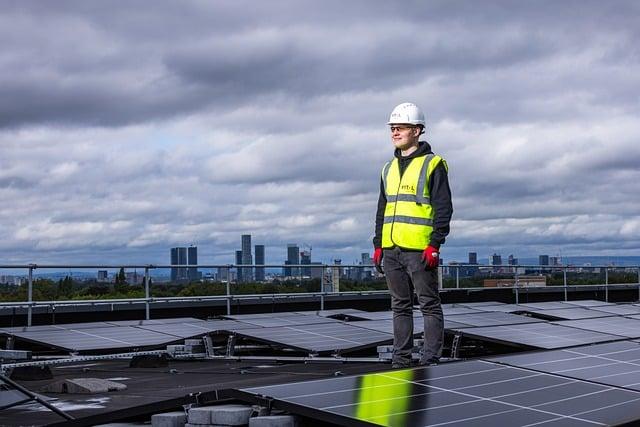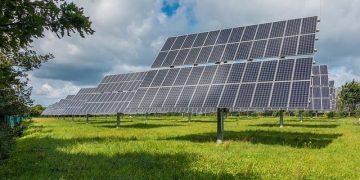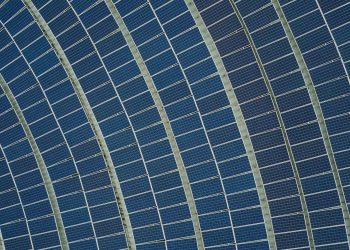In a world increasingly powered by the sun, the shimmering panels that dot our landscapes symbolize more than just a shift in energy; they represent hope, innovation, and the promise of a sustainable future. Yet, beneath this glistening surface lies a complex debate about the efficacy and sustainability of the very technologies that drive this solar revolution. As the global demand for clean energy surges, so too does the scrutiny of solar technologies that fail to meet efficiency benchmarks. This has sparked a contentious dialogue: should governments step in to ban inefficient solar technologies, or does such regulation stifle innovation and hinder progress? In this article, we delve into the heart of this debate, exploring the multifaceted implications of governmental intervention in the realm of solar energy. Balancing environmental goals with economic realities, we aim to illuminate the path forward in the quest for a cleaner, brighter future.
Evaluating the Environmental Impact of Outdated Solar Systems
As the world races towards a greener future, the efficiency of solar technologies is coming under increased scrutiny. While solar power is a beacon of hope for sustainable energy, outdated systems can paradoxically hinder environmental progress. These aging installations often suffer from lower energy conversion rates, leading to the necessity for larger arrays to meet energy demands. This, in turn, results in more land usage and increased resource consumption during manufacturing and installation. Additionally, older systems may require frequent maintenance and replacement of parts, which can generate significant waste.
When evaluating the environmental footprint of these outdated solar systems, several factors need to be considered:
- Resource Depletion: Manufacturing outdated panels can require more raw materials compared to newer, more efficient technologies.
- Land Use: Inefficient panels often demand more space, impacting ecosystems and land availability.
- Waste Management: Disposal of older panels can pose significant environmental challenges, especially if not recycled properly.
In light of these considerations, the conversation about phasing out inefficient solar technologies becomes more pertinent. Striking a balance between innovation and sustainability is crucial, and governments may need to consider regulatory measures to ensure that solar power remains a truly green solution.

Economic Implications of Restricting Inefficient Solar Technologies
The economic landscape is inherently intertwined with the progression and adaptation of technology. When governments consider imposing restrictions on inefficient solar technologies, a ripple effect emerges, impacting various sectors. Energy producers and consumers alike face an altered economic environment, as outdated solar panels, though cheaper upfront, often result in higher costs over time due to lower energy outputs and more frequent maintenance requirements. This shift can stimulate a market for more efficient technologies, driving innovation and investment in the solar industry. Consequently, businesses may encounter initial financial strains in transitioning to more advanced systems, yet the long-term benefits could outweigh these early challenges.
Furthermore, a restriction on inefficient technologies could redefine employment landscapes. Potential economic implications include:
- Job Creation: Increased demand for cutting-edge solar technology could lead to job opportunities in research, development, and manufacturing.
- Market Competitiveness: New players may enter the market, fostering competition and potentially lowering costs for consumers.
- Global Trade Dynamics: Nations leading in efficient solar tech could gain a competitive edge in the international market, influencing trade balances.
Ultimately, the economic implications are multifaceted, affecting everything from household energy bills to international trade policies, necessitating careful consideration by policymakers to balance innovation with economic stability.

Balancing Innovation and Regulation in Solar Energy Policies
As governments grapple with the need to foster sustainable energy solutions, the juxtaposition of innovation and regulation becomes increasingly complex. Solar energy, a beacon of hope in the renewable sector, often finds itself at the center of this debate. On one hand, there’s the drive to encourage groundbreaking technologies that promise to revolutionize energy efficiency. On the other, there’s the pressing need to set regulatory standards that prevent the proliferation of subpar solar technologies that could hamper environmental goals.
- Encouraging Innovation: By offering subsidies and incentives, governments can motivate companies to develop cutting-edge solar solutions.
- Setting Benchmarks: Establishing minimum efficiency standards ensures that only viable technologies make it to market, thus maintaining consumer trust and environmental integrity.
- Promoting Research: Investment in research and development can uncover new materials and methods, potentially leading to breakthroughs that make solar energy more accessible and effective.
Balancing these elements requires a nuanced approach, one that encourages the evolution of solar technologies while ensuring they align with broader sustainability objectives. By focusing on strategic policies that both incentivize innovation and enforce necessary standards, governments can pave the way for a future where solar energy plays a pivotal role in our energy landscape.

Crafting Effective Policies for Advancing Solar Efficiency
To propel the solar industry towards greater heights of efficiency, it’s crucial to focus on formulating policies that do more than just set regulations. Strategic measures are necessary to ensure that innovation isn’t stifled, but rather encouraged. Governments should consider a multi-faceted approach that balances regulation with incentives. Here are some key elements to consider:
- Incentives for Innovation: Offer tax breaks and grants to companies developing cutting-edge, efficient solar technologies.
- Performance Standards: Set clear, achievable benchmarks for solar panel efficiency to guide manufacturers without hindering their progress.
- Research and Development Support: Increase funding for R&D in solar technology to foster breakthroughs in efficiency.
- Public Awareness Campaigns: Educate consumers on the benefits of efficient solar technology, thereby increasing demand and encouraging manufacturers to innovate.
By implementing policies that focus on these areas, governments can drive the solar industry towards sustainable and effective advancements, ensuring a future where solar energy is both accessible and highly efficient.
The Way Forward
As we stand at the crossroads of technological advancement and environmental responsibility, the question of whether governments should ban inefficient solar technologies looms large. The answer is not a simple one; it is a complex tapestry woven with threads of innovation, economic viability, and environmental stewardship.
While some argue that banning inefficiencies could accelerate progress, others caution against stifling innovation and limiting consumer choice. What remains clear is the need for a balanced approach—one that encourages technological evolution while safeguarding our planet’s future. As we move forward, the dialogue surrounding solar technology will undoubtedly continue to evolve, much like the technologies themselves. The sun, after all, shines on both the efficient and the inefficient, and it is up to us to harness its power wisely.


































